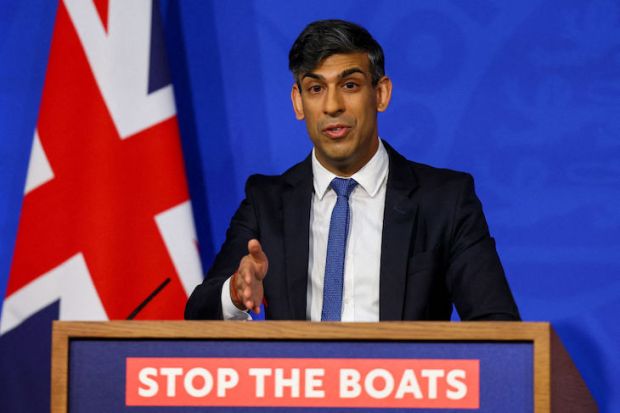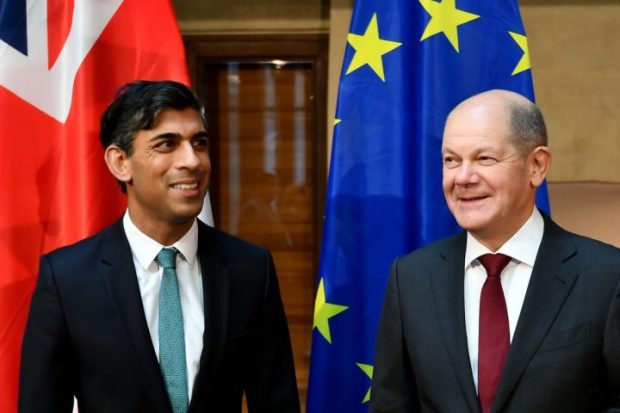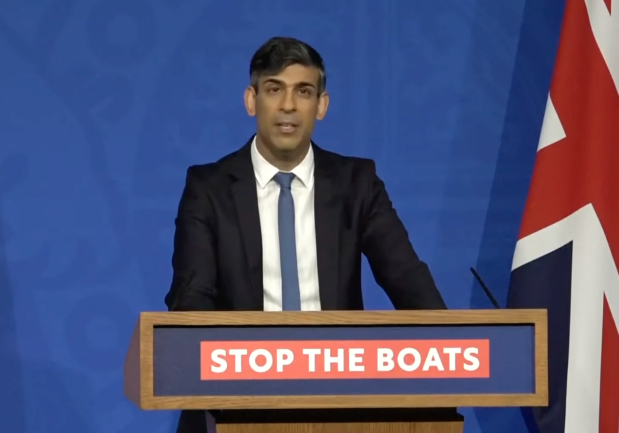Rishi Sunak thinks Boris Johnson goofed badly when he conspiring to upend Commons standards procedures and agrees with his colleagues in ‘red wall’ seats that this appeared to place the government on the side of a privileged elite.
That is certainly the standard interpretation of his comment this week that the government needed to do better – and indeed unattributable briefings by an ally say that he regarded the episode as a ‘mistake’ which should be acknowledged by someone of cabinet rank.
But if red wall Tories are tempted to regard Sunak as the true keeper of their flame then I suggest they think again. Because while Johnson has indeed gaffed, the Chancellor has also recently announced a decision that may well imperil their re-election prospects.
In fact Sunak’s gaffe is potentially much more serious as it represents a direct assault on the self-esteem of millions of voters and their idea of basic fairness.
In his recent Budget, the Chancellor committed the government to several eye-catching policies, including a big uplift in the minimum wage, these days rebranded as the ‘national living wage’. But something that went unremarked upon was reaffirmation of a target of raising the minimum wage as a share of average pay.
A 6.6 per cent uplift this year would, said Sunak, keep the government ‘on track for our target of two-thirds of median earnings by 2024.’ Many Tory MPs beamed with happiness, no doubt thinking this would further bolster the working-class parts of their new electoral coalition. But will it?
According to the OECD, the UK minimum wage was worth 34 per cent of mean earnings and 41 per cent of median earnings in the year 2000. It has since risen steadily as a share of these averages, hitting 48 per cent of mean earnings and 58 per cent of median earnings in 2020.
Think about how this must feel to workers on roughly median earnings. Two decades ago they earned two-and-a-half times as much as minimum wage workers. Now they earn less than twice as much. By 2024, Sunak has decreed that minimum wage workers in entry level roles will be earning two-thirds of the amount that median earners do. This will represent a massive compression of wages within a single generation.
For those working people who put in a lot of effort in their schooldays compared to their more idle classmates, or who perhaps underwent apprenticeships on very low earnings at the start of their careers, this is highly unlikely to feel like progress.
When you consider the extra responsibilities higher-earning working class jobs typically entail compared to minimum wage roles – and the fact that various welfare entitlements may further reduce the net advantage – this government policy is coming close to rendering the entire hardworking ethos pointless.
This issue of earnings relativities between different grades of workers has long been a highly sensitive one in industrial relations, often more so than the level of raw pay per se. Indeed, it was the cause of countless strikes in the 1970s.
Instead of anticipating a celebratory mood among new working-class Tory voters, ministers should be on the lookout for restlessness and resentment. Indeed, the former Downing Street pollster James Johnson has already spotted the first stirrings of this in focus groups with participants grumbling that too much help is being directed to those at the very bottom.
Sunak has no parallel policy of ensuring that median earnings catch up as a proportion of the top 10 or 1 per cent of earners. In other words, his approach defies logic. Those in the modest middle of the pay scale have every reason to feel victimised.
The left-wing commentator Polly Toynbee once tellingly compared British society to a camel train moving through a desert – noting how the camels at the front had galloped clear of the rest of the herd during the early years of this century. To carry that analogy further, now the camels at the front have broken away from the train altogether and are several dunes ahead, while those in the middle are getting caught up by those at the back and are expected to like it.
One can’t help feeling that Margaret Thatcher and her advisers had an altogether better innate understanding of what makes the ambitious working classes and lower middle classes tick than Boris Johnson’s administration. Which is why her flagship policy of bringing in the right-to-buy their council houses at a discount scored an electoral bullseye with aspirational voters.
Aside from risking a political backlash, Sunak’s continued policy of compressing the gap between the low and averagely paid will also potentially set off inflationary wage claims and possibly even strikes among workers bubbling with resentment about the erosion of their relative positions.
If Tory MPs in red wall seats think this policy is going to delight many of their constituents then I predict that they are about to be disabused of that notion.
<//>
Got something to add? Join the discussion and comment below.
Get 10 issues for just $10
Subscribe to The Spectator Australia today for the next 10 magazine issues, plus full online access, for just $10.




















Comments
Don't miss out
Join the conversation with other Spectator Australia readers. Subscribe to leave a comment.
SUBSCRIBEAlready a subscriber? Log in